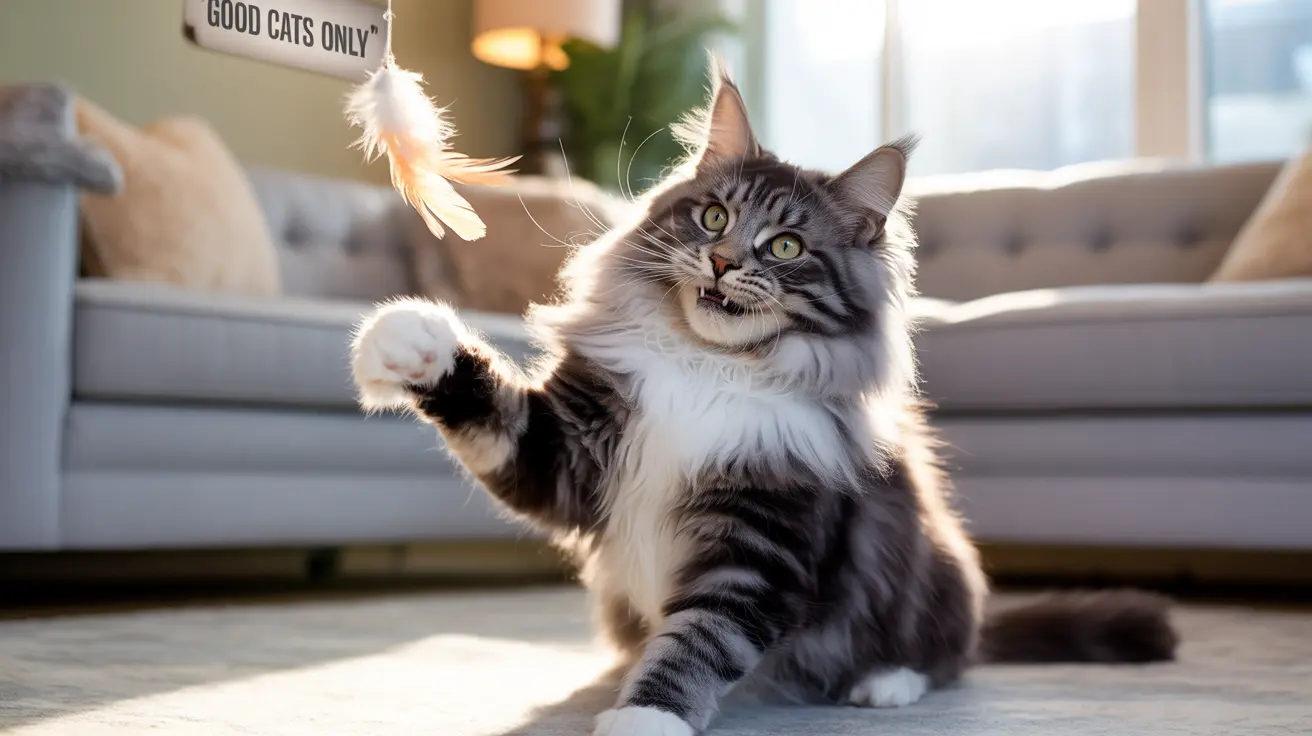Understanding Tuxedo Cat Behavior: What Science Tells Us
Recent research published in the Journal of Applied Animal Welfare Science has revealed interesting patterns in cat behavior based on coat color. Studies indicate that black-and-white cats, including tuxedos, may display higher levels of assertiveness during routine interactions and veterinary visits compared to cats with other coat patterns.
However, it's crucial to understand that these findings represent general trends rather than absolute rules. Many tuxedo cats are known to be gentle, affectionate, and well-adjusted companions, highlighting the importance of considering individual personality traits over coat color alone.
The Role of Genetics and Environment
Tuxedo cats aren't actually a distinct breed but rather showcase a specific coat pattern that can appear in various cat breeds. This genetic diversity means that their temperament can vary significantly based on their breeding background. For instance, a tuxedo Maine Coon may exhibit different behavioral traits compared to a tuxedo American Shorthair.
Environmental factors and early socialization play crucial roles in shaping a cat's personality. Tuxedo cats raised in nurturing environments with proper socialization typically develop into well-adjusted adults, regardless of any predispositions associated with their coat pattern.
Common Personality Traits of Tuxedo Cats
Many tuxedo cat owners report distinct personality characteristics that seem common among these bi-colored felines:
- High intelligence and problem-solving abilities
- Strong independence coupled with social tendencies
- Playful and energetic nature
- Vocal communication style
- Strong bonds with their chosen family members
Managing Tuxedo Cat Behavior
If you're living with a tuxedo cat or considering adopting one, these strategies can help ensure a harmonious relationship:
- Provide regular interactive play sessions to channel energy positively
- Create enriching environments with climbing spaces and hiding spots
- Respect their personal space and boundaries
- Use positive reinforcement training techniques
- Maintain consistent daily routines
Early Signs and Prevention of Aggression
While tuxedo cats aren't inherently aggressive, understanding potential triggers and early warning signs can help prevent behavioral issues:
- Tail lashing or puffing
- Ear positioning (flattened against head)
- Growling or hissing
- Excessive skin twitching
- Sudden changes in pupil dilation
Frequently Asked Questions
Are tuxedo cats more aggressive than other cats because of their coat color?
While some studies suggest a correlation between black-and-white coat patterns and assertive behavior, coat color alone doesn't determine aggression. Individual personality, breeding, and socialization play much more significant roles in determining a cat's temperament.
Why do tuxedo cats prefer to be handled only on their own terms?
This behavior isn't unique to tuxedo cats but is common among all felines. Cats are naturally independent animals that value control over their environment and interactions. Respecting these boundaries actually helps build trust and reduce stress-related aggression.
How does breed and socialization affect the aggression level of tuxedo cats?
Breed genetics and early socialization are primary factors in determining a cat's personality and potential for aggression. Well-socialized cats from breeds known for gentle temperaments typically show less aggressive behavior, regardless of their coat pattern.
What are practical ways to reduce aggressive behavior in tuxedo cats?
Regular play sessions, proper environmental enrichment, consistent routines, and positive reinforcement training can help reduce aggressive tendencies. It's also important to identify and address any underlying medical issues that might contribute to aggressive behavior.
Do tuxedo cats show friendly or affectionate traits despite reported aggression?
Yes, many tuxedo cats are known for being loving, loyal, and affectionate with their families. They often form strong bonds with their owners and can be quite social when properly socialized and comfortable in their environment.






